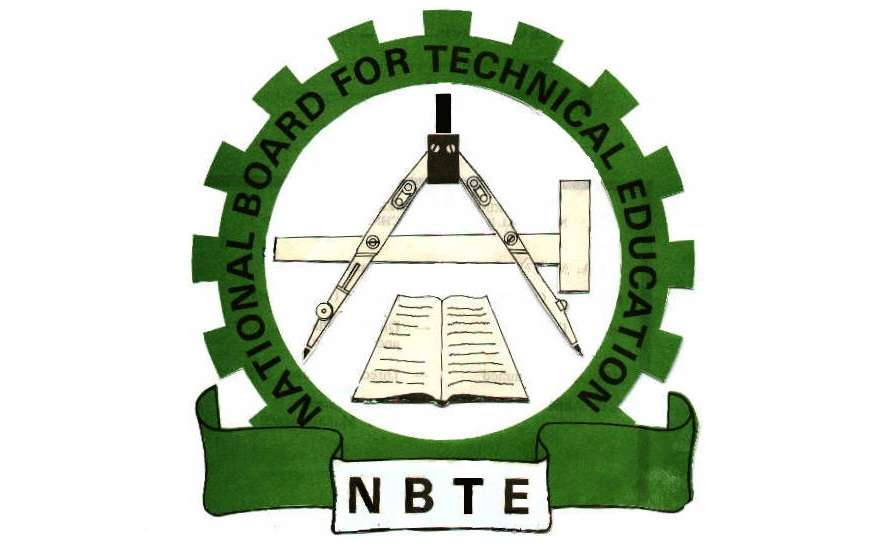The debate around HND, BSc dichotomy took a new dimension recently when the National Board for Technical Education (NBTE) said it had come up with a programme to enable polytechnics certificate holders to be at par with their counterparts with bachelor’s degrees.
Early this month, the National Board for Technical Education, said it had unveiled what it called an online top-up programme for Higher National Diploma holders to convert their certification to Bachelor’s Degree, with foreign accredited universities.
The board, in a statement by its Head of Media Unit, Mrs Fatima Abubakar, said this was also to facilitate the progression of HND holders to higher degrees.
According to her, “Attempts in the past to get the National Universities Commission to approve a two-year Master of Technology for HND holders in some polytechnics did not see the light of the day”.
- Arms proliferation: NATCOM to engage 300,000 personnel nationwide
- LG tussle: Plateau council workers commence indefinite strike over fear of attacks
Also speaking, the Executive Secretary of the board, Prof Idris Bugaje, said the initiative would ease the suffering of HND holders in the country. He added that efforts made to remove the dichotomy between HND and bachelor’s degrees have been without success.
He, therefore, added that to keep the hope alive, the NBTE had to find an alternative route, which is for them to do a one-year top up, in conjunction with some foreign universities.
The issue about HND, BSC dichotomy has been on for a while, with some holders of certificates from polytechnics facing discrimination at work places and even institutions of learning. This development caused the National Assembly in 2021 to pass the “Bill for an Act to Abolish and Prohibit Dichotomy and Discrimination between First Degree and Higher National Diploma in the Same Profession/Field for the Purpose of Employment; and for Related Matters”.
The bill, which is yet to be assented to, seeks to abolish the discrimination of polytechnic graduates from their university counterparts in employment and promotion in the workplace.
We understand that the discrimination between the two certificates exist, especially in work places and we call on the government to assent to the bill, which was passed by the 9th Assembly to abolish this discrimination once and for all. We also urge the NBTE to engage with stakeholders to end the discrimination, which we believe requires a political solution. But we must state here that the top-up idea is scandalous. It is one thing to argue that holders of both certificates are treated equally in places of work, but to organise a top-up or conversion programme is condemnable in all ramifications and we call for it to be stopped immediately. In fact, it is shameful that a government institution is behind this initiative. The NBTE should note that the civil service / public service where such discrimination exists are not the only places to earn a living, especially at this time when the rate of unemployment is on the rise and the government is unable to accommodate most of the graduates. Holders of the HND certificates should be encouraged to use the certificate and skills from polytechnics to work and earn a living by themselves.
The HND qualification in itself represents something unique; which is technical knowledge that is not available in universities. We must understand that the world is changing and no nation can succeed without technicians. This constant harping on the need to change the status of polytechnic degrees is capable of discouraging persons who want to go to polytechnics or people who hold such certificates. This aim to dilute the essence of technical education must stop. Each of the certificates; HND, BSc, is unique in its own way and can be applied in different ways to improve the nation and their holders should be encouraged.
It is also worrisome that the top up programme is to be done in conjunction with institutions outside the country. Definitely the curricula of those institutions will be different from those of universities in Nigeria. Also, what is the monitoring mechanism in place to gauge the candidate to ensure that he/she has qualified for the top-up? How much can an individual learn to change the status of his certificate in one year, which is the prescribed timeline for the proposed top up? There is also the issue of affordability; since it is not run locally, it could be out of reach of the average holder of the certificate. This initiative makes nonsense of the entire essence of the polytechnics. The polytechnics were set up for a reason, for technical know-how among others. They are serving a particular purpose. If we are not careful, we may forget why the polytechnics were set up in the first place.
If the universities, which award BSc and equivalent were the same as the polytechnics, then there would be no need for the polytechnics. This is part of what is holding Nigeria down… quest for certificates. We caution the NBTE against muddling up the waters. Holders of polytechnic certificates have knowledge that can be applied in a very unique way in different sectors of the economy; they should be encouraged to do so.

 Join Daily Trust WhatsApp Community For Quick Access To News and Happenings Around You.
Join Daily Trust WhatsApp Community For Quick Access To News and Happenings Around You.


